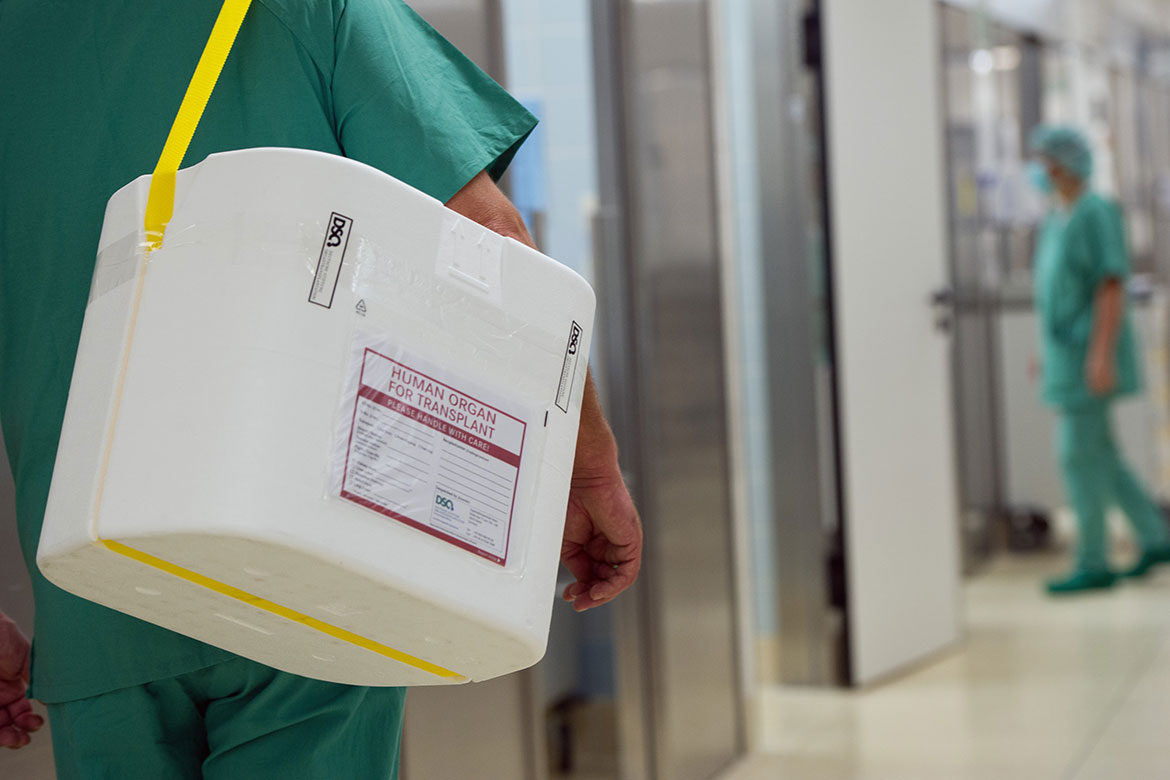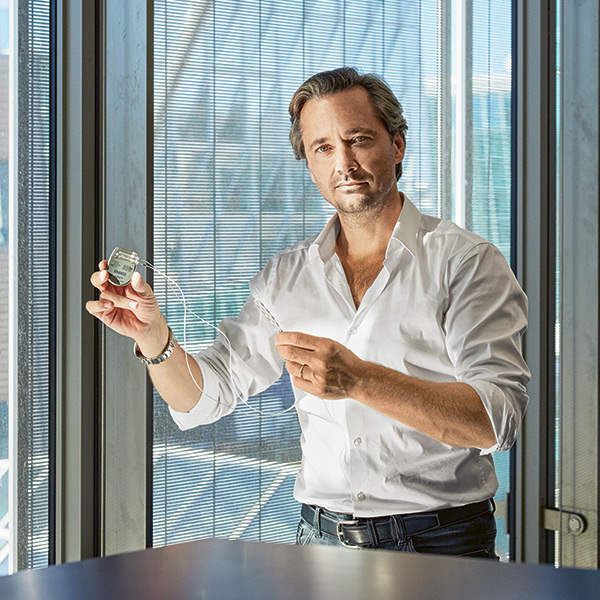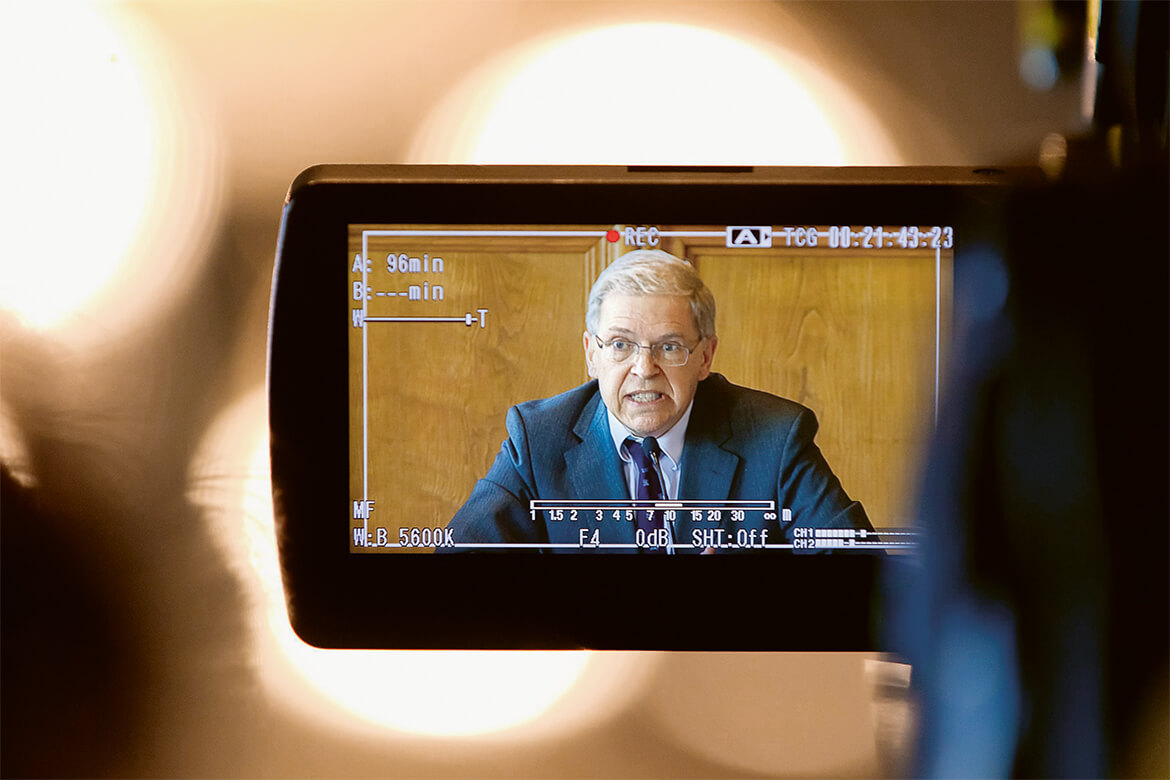Neuropsychology
Getting high in the lab
The neuropsychologist Katrin Preller gets her test subjects high on drugs – all in order to find out whether LSD can be used for therapeutic purposes.

The neuropsychologist Katrin Preller investigates the impact of psychedelic drugs – but won’t say if she’s tested them on herself. | Image: Mara Truog
At first glance, what Katrin Preller does in her lab seems almost immoral. The 35-year-old neuropsychologist at the University of Zurich gives her test subjects the recreational drug LSD (lysergic acid diethylamide) in order to find out how they react. Behind this seemingly reprehensible experiment lies scientific intent, however, as she wants to find out how to cure illnesses such as alcoholism and depression. “Even during my undergraduate studies, I was interested in how neurochemicals can influence our thoughts and behaviour. Substances like LSD can open up a window onto the chemistry of our brain”, she says.
Preller is working in a field that the pharmaceutical industry has all but abandoned. First, it’s very difficult to find new drugs to treat addiction and depression; secondly, when you do find them, they often have severe side-effects. This is why researchers are returning once again to the notorious compound LSD. It was discovered by the Swiss chemist Albert Hofmann, and was already used to treat alcoholism in the 1950s and ’60s. “But the studies conducted back then did not correspond to today’s standards. That’s why for a long time it was not clear whether or not LSD actually has any therapeutic effect”, says Preller. Further research was made impossible because of how the hippie movement jumped on the LSD bandwagon, and many countries banned the substance because of its uncontrolled use. It was only at the turn of the new millennium that interest in it surfaced once again, prompted by modern studies that suggested LSD could indeed have a positive impact on addiction and depression. This time round, scientists were equipped with MRI scanners in order to be able to trace the impact of the drug on the brain.
No negative consequences
The test subjects who allow themselves to be given a high in Preller’s lab are mostly students. “Most of our test subjects would like to try out LSD in a secure, controlled, legal environment”, she says. But is there no danger that the students might thereby get a taste for it? “No”, says Preller. “There is absolutely no potential for addiction with psychedelic substances. What’s more, we perform a prior medical check-up on all our test subjects, and those with any risk of psychosis or cardiac disease are excluded from participating. And once the tests are over, we monitor our test subjects both medically and psychologically”. Preller has been researching in this field for over ten years, and she has never observed any long-term, negative consequences among her test subjects.
Her tests don’t generally use LSD itself, but psilocybin, which is closely related to it, and is derived from so-called ‘magic mushrooms’. The advantage of this is that its impact wears off after six hours. LSD, however, can continue to affect people for up to 24 hours, which would mean very long working days for both Preller and her test subjects.
She usually administers a medium dose of 15-20 milligrams of psilocybin, or 100 micrograms of LSD when she does use it instead. While they are high, her test subjects have to undertake tasks such as answering questions at a computer. For example, they might be shown faces on the screen that express different emotions. They then have to categorise these facial emotions, and say which face they find the most likeable.
Only connect
When the results of these tasks are evaluated along with the CT scans of their brains, Preller is able to map out the impact of the drug. One thing has become clear: “These substances can interrupt ingrained thought patterns in the brain. This could indeed help depressive people to get certain insights into their problems”, says Preller. Both LSD and psilocybin strengthen social connectedness. “Patients often feel isolated and cut off from others. LSD could help them to reactivate their social environment, which can ultimately help them to cope with their illness”.
But has Preller also tested the substances on herself? “That’s a question I never answer”, she says. “Regardless of how I answer, it wouldn’t look good for me. Some would like me to say ‘yes’. But others might think that my own experiences could end up influencing my research”.




